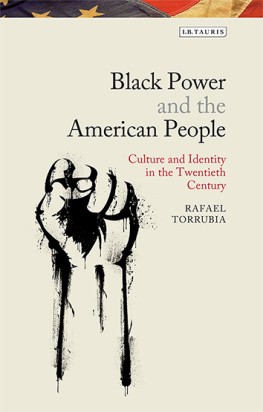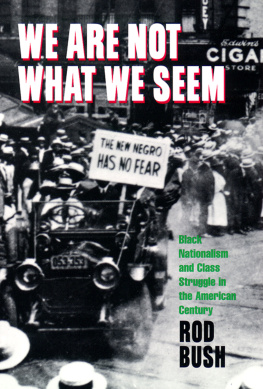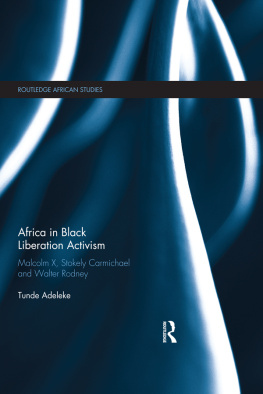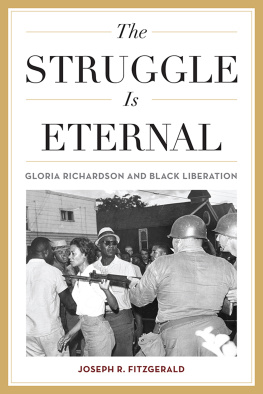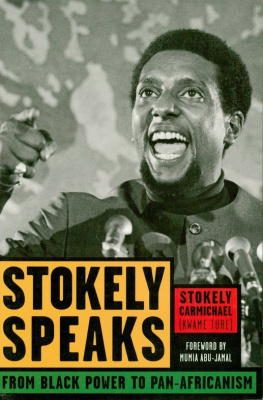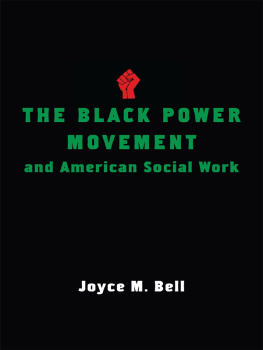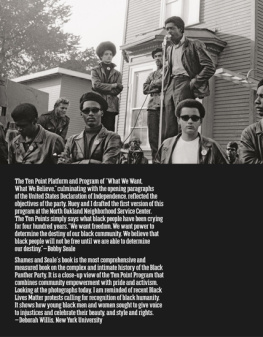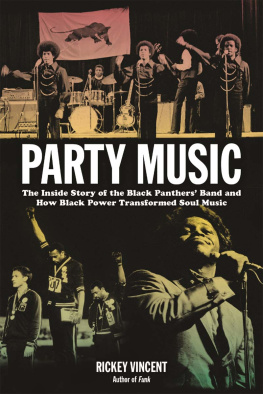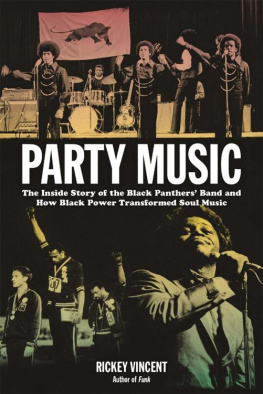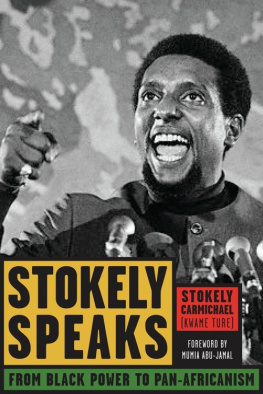Rafael Torrubia completed his PhD in History under Gerard DeGroot at the University of St Andrews.
By turns lyrical, passionate and thought provoking, Black Power and the American People is an essential step towards uncovering and understanding the long history of the Black Power movement in America. Gerard DeGroot, Professor of Modern History, University of St Andrews and author of The Sixties Unplugged
Gerard DeGroot, Professor of Modern History, University of St Andrews and author of The Sixties Unplugged
This book would not exist without the help of many people, but very particularly my wonderful PhD supervisor and mentor, Professor Gerard DeGroot, and my unfailingly supportive parents, who remain inexplicably proud to have raised an historian.
Published in 2016 by
I.B.Tauris & Co. Ltd
London New York
www.ibtauris.com
Copyright 2016 Rafael Torrubia
The right of Rafael Torrubia to be identified as the author of this work has been asserted by the author in accordance with the Copyright, Designs and Patents Act 1988.
All rights reserved. Except for brief quotations in a review, this book, or any part thereof, may not be reproduced, stored in or introduced into a retrieval system, or transmitted, in any form or by any means, electronic, mechanical, photocopying, recording or otherwise, without the prior written permission of the publisher.
References to websites were correct at the time of writing.
Library of Modern American History 5
ISBN: 978 1 78076 394 1
eISBN: 978 1 78672 088 7
ePDF: 978 1 78673 088 6
A full CIP record for this book is available from the British Library
A full CIP record is available from the Library of Congress
Library of Congress Catalog Card Number: available
INTRODUCTION
QUESTION: What is Black Power, Daddy? ANSWER: ? So began the Pulitzer Prize winning playwright Charles H. Fuller's eponymous piece, published in 1979 as the Black Power movement faded from America's political consciousness. Yet while Fuller put pen to paper almost forty years ago, it's a question we still have trouble answering even today. In part, this book hopes to address that issue. Post-Ferguson, in an increasingly racialised America where the lines between black and white Americans seem once more to be thrown into stark relief the legacy of the Black Power movement is on the rise. While the mainstream media remain mostly content with the occasional dewy-eyed retrospective on philosophers and demagogues softened by the passage of the time, and while the more thoughtful outlets might remark upon the political and economic legacies left by the Black Power movement's political heyday, the quiet legacy of Black Power; its long history in American culture and its profound influence on the American racial imagination remains something of a whisper, barely heard beneath the microphone static and ghost-gun rattle of a political and social revolt too quickly dismissed in our collective recollection, or too easily blended with the broader sweep of the civil rights struggle.
Black Power was both part of, and distinct from, the more familiar civil rights milieu. Its adherents drank from many of the same wells, but also ranged widely, voraciously and creatively in their search for new identities of resistance. This book hopes to take you down some of the paths they trod, and to give you a sense of the diversity and complexity present in the evolution of Black Power's relationship with the American people.
There is, perhaps, no better time to do so. The long history of the Black Power movement, evidenced in a series of connected cultural expressions across time, has been and continues to be instrumental in defining America's relationship with its citizens of colour. Its images of community, beauty, strength, empowerment and resistance inform today's dialogues. Its emphasis on controlling the means of culture creation to control your identity remains ever more relevant. When protestors today chant Hands Up, Don't Shoot, when they walk the streets bearing signs asking Am I next?, there remains the sense of a society in opposition with itself. When those same chants change into Hands Up, Shoot Back, they echo present and past frustrations alike. We also see in the mass protests that have swept the country the interaction between local and national solidarity which lay at the heart of Black Power, and the wider civil rights movement. Black Power, at its root, was an ideology of self-defense. Adherents sought to protect their community, their loved ones, at base, their life and identity from an inimical dominant society. It was an ideology which emphasised the creativity, beauty and potential of America's people of colour and their ability to drive society forward in a multitude of unexpected and essential ways. Yet it was also an ideology which divided and terrified much of late-1960s America.
Writing now, it seems ever more pressing to understand where these fears came from and to develop a more coherent picture of Black Power's place in American history. Not to teleologically shape our actions in the present, but so we can act and react with an understanding of past struggle which includes the long history of the Black Power movement as an essential component of the changing dynamics of the American people and American society.
While we cannot and should not draw easy parallels with a complicated past, the relationship between Black Power and the American people is a strong strand in a tapestry of racial oppression, resistance and reconciliation which still affects us all today. Understanding the ways in which Black Power has manifested through American history gives us a clearer sense of its enduring appeal, and a more lucid lens with which to examine the events in America today.
Constructing that lens requires some delicate work. The evolution of Black Power is an historical puzzle that has created confusion from its first official utterance on the Meredith March in 1966 to the present day. This book seeks to explore Black Power's long history; to trace its evolution through American culture and society by reconsidering the growth of Black Power sentiment as a series of connected cultural expressions across time. In this endeavour, I am not alone. There have been innumerable attempts to encapsulate these two incendiary words and understand their meaning for the American nation. So, how should we think about this mercurial historical phenomenon? When he strove to answer his unsettling question, Fuller himself reinforced the most accepted interpretation of the political movement. He wrote, The concept of Black Power embodies a clearly thought out, step by step process, which if initiated by the national Black community, will put control of those areas of government, which directly relate to us, into our hands. However, painting Black Power by its politics has only ever provided part of the picture.
Defining Black Power at its political zenith was comparatively simple defining it over the course of its long relationship with the American people is substantially more complicated. Historical assessment has reached the point where Black Power as a political term is comparatively well-defined, but Black Power outside the political sphere, and its attendant black militancy, remains amorphous. In January 1967, Black Panther Party member Stokely Carmichael remarked that, the first need of a free people is to define their own terms, and if any reassessment of the long cultural history of Black Power in America is to be undertaken, we first need to ask ourselves what exactly we mean when we say those iconic words. Black Power.

